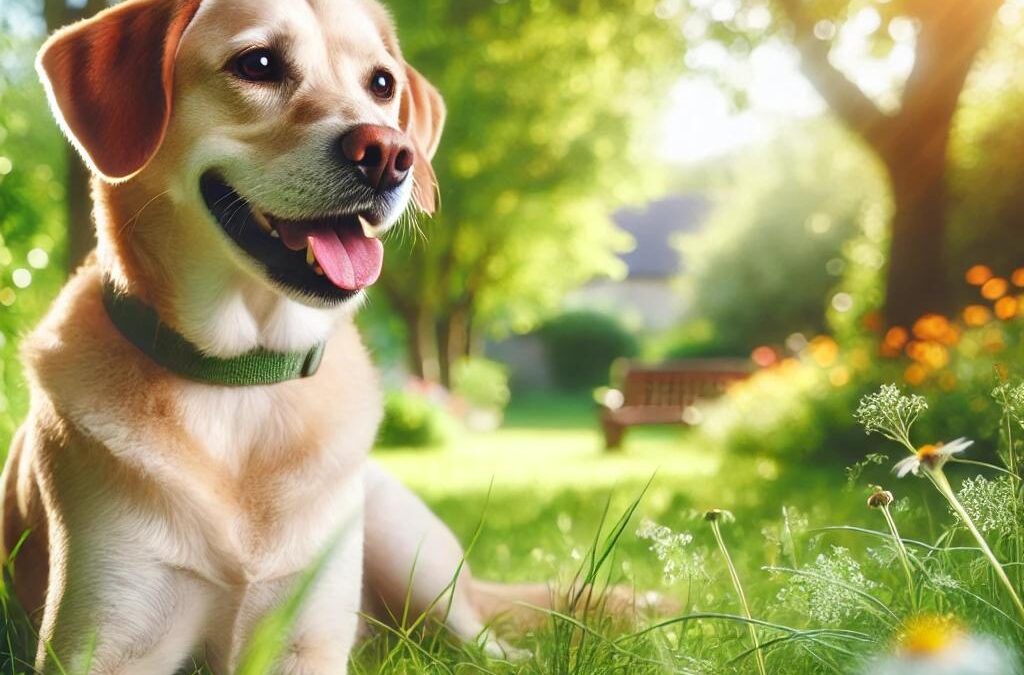
經過 TCMVET | 2024 年 9 月 16 日 | 狗癌症和腫瘤
近年來,人們越來越擔心塑膠對人類和動物造成的潛在健康風險。作為狗主人,您可能想知道您的狗每天接觸的塑膠物品(例如玩具、食物碗或容器)是否會增加癌症的風險。雖然沒有明確的答案,但了解與塑膠相關的潛在危險以及如何減少您的狗接觸有害化學物質是至關重要的。
塑膠會導致狗狗患癌症嗎?
雖然塑膠與狗癌症之間的直接關聯仍在研究中,但某些塑膠中發現的一些化學物質已知是有害的,隨著時間的推移可能會帶來癌症風險。這些化學物質可能會滲入食物、水中,或被狗狗透過咀嚼的玩具或塑膠製品攝入。
以下是最常見的塑膠類型及其潛在風險:
1. 雙酚A (BPA)
BPA 是一種存在於聚碳酸酯塑膠和環氧樹脂中的化學物質,通常用於塑膠食品容器、水瓶,甚至狗玩具。 BPA 與人類的各種健康問題有關,包括癌症,並被認為是一種內分泌幹擾物。儘管針對狗的 BPA 和癌症的研究有限,但人們相信接觸這種化學物質可能會對寵物造成類似的風險。
2. 鄰苯二甲酸鹽
鄰苯二甲酸鹽是用於使塑膠更加柔韌的化學物質,它們經常出現在乙烯基地板、塑膠包裝和狗玩具等產品中。這些化學物質也是已知的內分泌幹擾物,可能會幹擾荷爾蒙功能。雖然還需要更多的研究,但有人認為長期暴露於鄰苯二甲酸鹽會增加動物(包括狗)罹患癌症的風險。
3. 微塑膠
微塑膠是微小的塑膠顆粒,會污染水和食物來源。當狗飲用受污染的水或攝入接觸過塑膠包裝的食物時,這些顆粒會積聚在狗的系統中。儘管微塑膠與癌症之間的關聯仍在研究中,但長期接觸可能會導致狗發炎和其他健康問題。
狗狗接觸塑膠的常見來源
狗在日常生活中的許多情況下都會接觸塑料,而寵物主人往往沒有意識到潛在的風險。以下是一些常見的塑膠暴露來源:
- 塑膠食物碗和水碗: 廉價的塑膠碗會將 BPA 和鄰苯二甲酸鹽等化學物質滲入狗的食物和水中,尤其是暴露於高溫或陽光下時。
- 塑膠玩具: 狗狗喜歡咀嚼玩具,但許多狗狗玩具都是由含有有害化學物質的材料製成的。如果狗吞下小塊塑料,這些化學物質可能會進入它們的系統。
- 塑膠包裝: 許多商業狗糧和零食都採用塑膠包裝,這可能會使食物在儲存或處理過程中暴露於化學物質中。
- 家用塑膠: 塑膠袋、瓶子和容器等物品可能會被好奇的狗咀嚼或攝入,導致意外接觸有害化學物質。
如何最大限度地減少塑膠相關風險
儘管塑膠在現代生活中幾乎是不可避免的,但您可以採取幾個步驟來最大程度地減少您的狗接觸潛在有害化學物質的機會。
1. 使用不銹鋼或陶瓷碗
選擇不銹鋼或陶瓷碗來盛裝狗狗的食物和水,而不是塑膠碗。這些材料不會浸出有害化學物質,而且通常更耐用。請務必定期清潔碗,以避免細菌滋生。
2. 選擇不含 BPA 和鄰苯二甲酸鹽的玩具
購買狗玩具時,請尋找標有不含 BPA 和鄰苯二甲酸鹽的產品。許多公司現在提供由橡膠或有機纖維等天然材料製成的環保、無毒的狗玩具。這些玩具對您的狗咀嚼更安全,並且不會讓它們接觸有害化學物質。
3. 避免加熱塑膠容器
切勿在塑膠容器中加熱狗的食物,因為熱量會導致有害化學物質滲入食物中。如果您需要加熱狗的食物,請先將其轉移到陶瓷或玻璃盤中。
4. 將狗糧存放在安全的容器中
不要將狗糧放在原來的塑膠包裝中,而是將其轉移到密封、不含 BPA 的容器或不銹鋼箱中。這將有助於降低化學物質滲入狗的食物中的風險。
5. 限制你的狗接觸塑膠家居用品
將塑膠袋、瓶子和其他家居用品放在狗狗夠不著的地方。咀嚼這些物品不僅會讓您的狗接觸有害化學物質,而且小塑膠碎片還會造成窒息危險或導致腸道堵塞。
雖然塑膠與狗患癌症之間的關聯尚無定論,但塑膠中發現的某些化學物質(例如 BPA 和鄰苯二甲酸鹽)已知會帶來健康風險。為了減少與塑膠相關的健康問題的可能性,最好選擇更安全的替代品,例如不銹鋼碗、不含 BPA 的玩具和環保材料,以限制您的狗接觸塑膠。如果您擔心您的狗的健康和安全,請隨時了解情況並諮詢您的獸醫。

經過 TCMVET | 2024 年 9 月 14 日 | 狗癌症和腫瘤
當狗被診斷出患有癌症時,對於任何寵物主人來說都可能是毀滅性的經歷。然而,透過正確的護理和關注,即使在與這種疾病作鬥爭的同時,您也可以幫助您的毛茸茸的伴侶舒適地生活並享受生活品質。了解如何為患有癌症的狗提供最好的護理涉及滿足他們的身體和情感需求。在本文中,我們將探討如何照顧患有癌症的狗,從控制症狀到提供情感支持。
1. 了解診斷
照顧患有癌症的狗的第一步是充分了解診斷結果。癌症有多種形式,根據癌症的類型、階段和部位,預後可能會有很大差異。狗的常見癌症類型包括:
- 淋巴瘤
- 肥大細胞腫瘤
- 骨肉瘤(骨癌)
- 血管肉瘤
- 肝癌
請諮詢您的獸醫,以全面了解您的狗患有的癌症類型、可用的治療方法以及您可以預期的結果。
2. 與您的獸醫一起制定治療計劃
狗的癌症治療方法可能差異很大,因此必須與獸醫密切合作以製定量身定制的治療計劃。一些常見的癌症治療方法包括:
- 手術:如果腫瘤是局部的,手術有時可能是切除癌症最有效的方法。
- 化療:這通常用於治療已擴散到全身的癌症,例如淋巴瘤。
- 放射治療:放射線可以幫助縮小無法手術的腫瘤或減輕疼痛等症狀。
- 安寧療護:在某些情況下,治療可能著重於控制疼痛和改善生活質量,特別是在癌症晚期或無法治療的情況下。
3. 控制疼痛和症狀
癌症會導致狗狗出現多種症狀,包括疼痛、疲勞和消化問題。控制這些症狀以使您的狗盡可能舒適至關重要。您的獸醫可能會開藥來控制疼痛、發炎和噁心。此外,針灸或物理治療等替代療法可以幫助緩解不適。
控制狗狗症狀的一些方法包括:
- Pain Relief:非類固醇抗發炎藥或鴉片類藥物等藥物可用於減輕疼痛。
- 飲食變化:富含易消化蛋白質和低碳水化合物的特殊飲食可能有助於支持您的狗的免疫系統並維持能量水平。
- 保濕:確保您的狗狗水分充足,尤其是在癌症或治療導致嘔吐或腹瀉的情況下。
4. 調整飲食以獲得最佳健康
營養在支持患有癌症的狗方面發揮著至關重要的作用。患有癌症的狗經常會出現食慾改變或消化某些食物困難。根據癌症患者的需求量身定制的均衡飲食有助於保持體力並改善整體健康。以下是一些飲食注意事項:
- 優質蛋白質:患有癌症的狗可能需要更多的蛋白質來維持肌肉質量和免疫功能。請諮詢您的獸醫有關優質蛋白質來源的資訊。
- 健康脂肪:魚油中含有的 Omega-3 脂肪酸具有抗發炎作用,可能有助於減緩某些腫瘤的生長。
- 低碳水化合物:一些研究表明癌細胞依靠葡萄糖生長,因此減少碳水化合物的攝取量可能會減緩癌症的進展。
5. 提供情感支持和安慰
癌症診斷會給狗和主人帶來壓力。狗狗和人類一樣,在生病期間也會經歷焦慮、困惑或憂鬱。提供情感支持與身體照護同樣重要。與您的狗共度美好時光,透過撫摸和溫柔的互動提供舒適感,並保持平靜和積極的環境。
- 保持規律:保持規律的日常生活可以提供正常感並減輕壓力。
- 打造舒適空間:確保您的狗狗有一個安靜、舒適的區域,可以讓它們休息而不會受到干擾。
6. 監控行為變化
當您的狗接受治療時,必須密切監測行為或症狀的任何變化。如果您的狗看起來比平常更昏昏欲睡、疼痛加劇或進食困難,這些可能表示癌症正在進展或需要調整治療。在此期間,定期與獸醫進行檢查至關重要。
7. 探索整體療法和替代療法
一些寵物主人轉向整體療法來補充傳統的癌症治療。雖然針灸、CBD油和草藥補充劑等療法不能取代獸醫護理,但可以緩解疼痛、焦慮或噁心等症狀。在嘗試替代治療之前,請務必諮詢您的獸醫,以確保它們不會幹擾主要治療計劃。
照顧患有癌症的狗需要醫療護理、症狀管理和情感支持之間的平衡。透過與您的獸醫密切合作,提供舒適的環境,並調整您的狗的飲食和日常生活,您可以幫助它們在生病期間盡可能舒適地生活。每隻狗的癌症之旅都是獨一無二的,雖然這是一段艱難的時期,但提供愛、關注和護理可以為您心愛的寵物帶來巨大的改變。

經過 TCMVET | 2024 年 9 月 14 日 | 狗癌症和腫瘤
肝癌是一種嚴重的疾病,可以影響任何品種或年齡的狗,儘管它在老年狗中更為常見。早期發現肝癌至關重要,因為它可以顯著提高寵物獲得有效治療的機會並提高生活品質。在本文中,我們將討論狗肝癌的主要症狀、診斷過程以及可用的治療方案,以幫助寵物主人應對這種具有挑戰性的疾病。
1. 什麼是狗的肝癌?
狗的肝癌可以起源於肝臟(原發性肝癌),也可以從身體的其他部位擴散(轉移性肝癌)。狗最常見的原發性肝癌是肝細胞癌,形成於肝細胞。肝臟在身體解毒、產生膽汁和支持新陳代謝方面發揮著至關重要的作用,使其健康對狗狗的整體健康至關重要。
2. 狗肝癌的徵兆和症狀
狗的肝癌在早期階段很難被發現,因為症狀往往很微妙或被誤認為是其他健康問題。然而,有幾個可能預示肝癌的警訊需要注意:
- 食慾不振:患有肝癌的狗通常會對食物失去興趣,導致體重明顯減輕和能量水平降低。
- Vomiting and Diarrhea:隨著肝臟功能下降,可能會出現消化問題,例如頻繁嘔吐、腹瀉,甚至便秘。
- 昏睡:肝癌最常見的症狀之一是缺乏能量。狗可能會顯得疲倦、虛弱、不願意玩耍或運動。
- Jaundice:皮膚、眼睛和牙齦發黃(稱為黃疸)是肝臟問題的關鍵指標。當肝臟無法處理膽紅素(紅血球分解過程中產生的物質)時,就會發生這種情況。
- Abdominal Swelling:腹部腫脹,有時伴隨疼痛或不適,可能是肝臟腫瘤或液體積聚的徵兆。
- 口渴和排尿增多:隨著肝臟過濾毒素的能力下降,狗可能會感到口渴和排尿增加。
- 行為改變:有些狗可能會變得更加煩躁或孤僻,而另一些狗可能會由於血液中毒素的積累而顯得困惑或迷失方向。
3. 診斷狗的肝癌
如果您的狗出現任何上述症狀,請務必諮詢獸醫進行徹底檢查。診斷肝癌通常涉及:
- 體檢:獸醫會檢查是否有疼痛、腫脹或黃疸的跡象。
- Blood Tests:肝功能測試,包括檢查肝酵素水平,可以顯示肝臟功能異常。
- 超音波或 X 射線:影像學檢查可以幫助觀察肝臟中的腫瘤或異常生長。
- 活檢:可以採集肝臟組織樣本來確認腫瘤是否有癌症。
4. 狗肝癌的治療選擇
犬肝癌的治療取決於腫瘤的類型、大小和階段,以及犬隻的整體健康狀況。一些常見的治療方案包括:
- 手術:如果腫瘤是局部的且尚未擴散,則可以手術切除腫瘤。這為肝細胞癌患者提供了最好的康復機會。
- 化療:在無法進行手術或癌症擴散的情況下,可以使用化療來減緩疾病的進展。然而,化療對於原發性肝癌的效果通常不如其他類型的肝癌。
- 藥物:疼痛管理和藥物控制嘔吐、腹瀉和不適等症狀通常是治療計劃的一部分。
- 飲食變化:為患有肝病的狗配製的特殊飲食可能有助於減輕肝臟的壓力並提高生活品質。
- 安寧療護:在無法進行治癒性治療的晚期病例中,安寧療護可以專注於為狗在生命的最後階段提供舒適和控制疼痛。
5. Prognosis and Life Expectancy
患有肝癌的狗的預後取決於幾個因素,包括癌症的類型、診斷時的階段以及狗的整體健康狀況。成功接受局部腫瘤切除手術的狗可能會多活幾年。然而,在癌症已經擴散或無法進行手術的情況下,預後往往較差,重點是維持生活品質。
6. 預防狗的肝癌
雖然沒有可靠的方法可以預防狗狗罹患肝癌,但定期進行獸醫檢查可以幫助及早發現健康問題。為您的狗提供均衡飲食、定期運動和避免接觸有害毒素是支持肝臟健康的重要步驟。
狗的肝癌是一個嚴重的診斷,但識別早期跡象並及時治療可以顯著改善狗的生活品質。如果您發現任何相關症狀,請務必諮詢您的獸醫,並與他們合作為您的寵物製定最佳治療計劃。

經過 TCMVET | 2024 年 9 月 13 日 | 狗癌症和腫瘤
當狗被診斷出患有癌症時,寵物主人通常會尋求整體方法來支持寵物的健康。排毒,或幫助身體消除有害物質的過程,是許多人求助的自然方法。雖然排毒不能治癒癌症,但它可能有助於減輕狗系統的一些毒性負擔,特別是在化療或放療等常規治療期間或之後。在本文中,我們將探討排毒如何使患有癌症的狗受益、支持排毒的方法以及將其納入癌症護理計劃時應考慮的事項。
什麼是狗狗排毒?
排毒是身體清除毒素的自然過程,毒素是來自環境、食物、藥物或身體自身代謝廢物的有害物質。對於患有癌症的狗來說,排毒的目的是減少這些毒素的積累,這些毒素可能會導致疲勞、發炎或進一步的疾病。支持肝臟、腎臟和淋巴系統(主要負責解毒的器官)可以幫助狗狗感覺更好並提高其整體生活品質。
排毒對患有癌症的狗的好處
排毒為狗狗對抗癌症提供了一些潛在的好處,包括:
- 減少有毒負荷:接受化療或放療等癌症治療的狗會接觸刺激性化學物質。排毒療法可以支持肝臟和腎臟處理和消除這些物質,從而減輕身體的壓力。
- 增強免疫功能:透過消除毒素和改善器官功能,排毒可能有助於增強免疫系統,使身體更好地抵抗感染,並可能減緩癌症的進展。
- 提高能量和活力:毒素過多的狗可能會感到遲鈍和疲勞。排毒可以幫助提高狗的能量水平,並促進癌症治療期間更好的生活品質。
- 支持消化和營養吸收:癌症治療會影響消化,導致營養吸收不良。排毒,特別是透過促進腸道健康,可以幫助身體更好地吸收癒合和恢復所需的維生素和礦物質。
為患有癌症的狗排毒的方法
為狗排毒應始終諮詢獸醫,特別是具有整體醫學或綜合醫學經驗的獸醫。以下是一些可用於幫助患有癌症的狗進行排毒的常見方法:
- 飲食變化 清潔的全食物飲食是支持排毒的最簡單方法之一。給你的狗餵食高品質、天然的原料,不含防腐劑、人工色素和不必要的填充劑,可以減輕它們肝臟和腎臟的負擔。主要的飲食變化包括:
- 新鮮有機食品:有機肉類、蔬菜和水果減少農藥和其他化學物質的攝取。
- 抗發炎食品:加入薑黃、富含 omega-3 的魚類(如鮭魚)和藍莓等抗發炎食物可以幫助減少發炎並支持整體排毒。
- 益生菌和纖維:在您的狗的飲食中添加益生菌或富含纖維的食物可以支持健康的消化並幫助清除胃腸道中的毒素。
- 草藥補充劑 許多草藥補充劑以其解毒特性而聞名,可以在獸醫的指導下安全地給狗服用。常見的排毒草藥包括:
- 水飛薊:奶薊草以其保護和再生肝細胞的能力而聞名,是一種流行的排毒草藥,可以幫助肝臟處理和消除毒素。
- 蒲公英根:蒲公英根支持肝臟和腎臟功能,使其成為整體排毒的有用草藥。
- 牛蒡根:牛蒡根可以幫助淨化血液並支持肝臟健康,使其成為排毒療法的重要補充。
- 保濕 確保您的狗狗水分充足對於支持腎臟和排出系統中的毒素至關重要。應始終提供新鮮、乾淨的水,在某些情況下,獸醫可能會建議使用電解質溶液來支持水合,特別是對於正在接受化療的狗。
- 排毒浴 使用瀉鹽等天然成分進行排毒浴可以幫助您的狗放鬆並透過皮膚排出毒素。瀉鹽浴被認為有助於減少發炎並支持身體的自然排毒過程。但是,在嘗試任何新的治療方法之前,請務必諮詢您的獸醫。
- 淋巴按摩 淋巴系統透過將廢物從組織運送到血液中進行過濾和清除,在解毒中發揮著至關重要的作用。輕柔的淋巴按摩可以刺激這個系統,幫助更有效地將毒素排出體外。對於此類治療,請務必尋求專業指導。
- 鍛鍊 雖然癌症治療可能會讓您的狗感到疲勞,但定期的低強度運動可以透過改善血液循環、刺激淋巴系統和促進整體健康來支持排毒。短距離散步或溫和的游泳等活動可能是有益的,但應根據您的狗的能量水平和身體狀況進行調整。
為患有癌症的狗排毒時的注意事項
雖然排毒對患有癌症的狗有益,但必須謹慎對待,尤其是當您的狗正在接受化療或放療等常規治療時。在採用任何新的排毒方案之前,請務必諮詢獸醫,因為某些方法或補充劑可能會幹擾癌症治療或加劇症狀。
一些關鍵考慮因素包括:
- 定時:排毒應該有策略地進行,特別是在化療期間。有些獸醫可能會建議化療後排毒,以幫助身體更有效地消除化學物質。
- 監控:排毒時密切注意狗狗的健康和行為。如果出現任何新症狀,或者您的狗似乎感覺更糟,請立即聯繫您的獸醫。
- 個人需求:每隻狗都是不同的,對一隻狗有效的方法可能不適用於另一隻狗。根據您的狗的具體需求定制排毒方法對於安全性和有效性至關重要。
透過排毒支持您的狗的健康
排毒是一種有益的補充方法,可以在癌症治療期間支持您的狗的健康。透過減少身體的有毒負荷並支持肝臟和腎臟等重要器官,排毒可以改善他們的生活品質和整體健康。然而,排毒永遠不應取代傳統的癌症治療,而應作為提供全面護理的額外工具。
與獸醫密切合作,為您的狗制定個人化的排毒計劃,確保其符合其醫療需求和治療方案。透過整體護理和傳統護理的適當平衡,您可以為您的狗狗提供在癌症治療過程中保持強壯和舒適的最佳機會。

經過 TCMVET | 2024 年 9 月 13 日 | 狗癌症和腫瘤
發現您的小狗有膀胱腫塊可能會令人震驚和痛苦。雖然膀胱腫塊在年長的狗中更常見,但偶爾也會發生在年幼的小狗中。診斷常常會引發許多問題:腫塊的原因是什麼?有哪些治療方案可供選擇?接下來的步驟是什麼?在本文中,我們將探討小狗膀胱腫塊的潛在原因、診斷和治療方案,幫助寵物主人做出明智的決定。
什麼是膀胱腫塊?
膀胱腫塊是膀胱內或周圍組織的異常生長。這些腫塊的大小各不相同,可能是良性(非癌性)或惡性(癌性)。雖然膀胱腫塊在老年犬中更為常見,但某些條件可能會導致幼犬出現膀胱腫塊。
膀胱腫塊的常見類型包括:
- 息肉:這些是小而良性的生長,可能在膀胱內壁形成,通常不會擴散。
- 腫瘤:良性和惡性腫瘤均可在膀胱中形成。最令人擔憂的膀胱腫瘤類型之一是移行細胞癌(TCC),這是一種惡性癌症。
- 感染或發炎:有時,慢性感染或泌尿問題引起的發炎可能會導致膀胱增厚或生長,可能類似於腫塊。
是什麼導緻小狗膀胱腫塊?
在幼犬中,膀胱腫塊比老年犬少見,但有幾個因素可能會促進其發育:
- 先天性異常:有些幼犬出生時泌尿系統可能有異常,導致腫塊形成。
- Infections:復發性泌尿道感染 (UTI) 或膀胱感染可能導致膀胱發炎、疤痕或生長。
- 膀胱結石:患有膀胱結石的小狗可能會出現繼發性感染或刺激,導致腫塊。
- 癌症:雖然在幼犬中很少見,但某些類型的癌症,如移行細胞癌 (TCC),可能會影響幼犬。
診斷:如何識別膀胱腫塊
如果您的獸醫懷疑您的小狗有膀胱腫塊,他們可能會進行多項診斷測試,以確定腫塊的性質和原因。
- 體檢:徹底的體檢將幫助獸醫評估您小狗的整體健康狀況並檢查是否有其他疾病跡象。
- 超音波或 X 射線:超音波或 X 射線等成像測試可以提供有關腫塊的詳細信息,包括其大小、位置以及是否已擴散到身體的其他部位。
- 尿液分析:可以進行尿液分析來檢查尿液中是否有感染、血液或異常細胞,這可能表示發炎或癌症。
- 切片或細針抽吸:在某些情況下,獸醫可能會建議進行活檢或細針抽吸以獲得腫塊樣本。可以分析樣本以確定腫塊是良性還是惡性。
- Blood Tests:血液檢查可以深入了解小狗的整體健康狀況,並幫助排除其他疾病。
患有膀胱腫塊的小狗的治療選擇
一旦診斷出膀胱腫塊,您的獸醫將根據腫塊的大小、位置以及良性或惡性來討論治療方案。
- 手術切除 如果腫塊可觸及且尚未擴散到身體其他部位,可能會建議手術切除腫塊。如果及早發現,手術切除對於息肉等良性生長甚至惡性腫瘤都有效。然而,手術是有風險的,特別是對於幼犬來說,因此權衡好處和潛在的併發症很重要。
- 藥物 如果手術不可行或腫塊是由感染或發炎引起的,則可以開藥。例如,如果腫塊與膀胱感染有關,則可以給予抗生素。抗發炎藥物或類固醇也可以幫助減輕腫脹和不適。
- 化療或放射治療 對於移行細胞癌等惡性腫瘤,可能會建議化療或放射治療。雖然這些治療旨在減緩癌症生長並緩解症狀,但它們可能會帶來副作用,尤其是對於幼犬。您的獸醫將幫助指導您了解這些治療方法的優點和缺點。
- 安寧療護 如果膀胱腫塊是惡性且晚期,安寧療護可能是最好的選擇。安寧療護的重點是控制症狀、提供舒適感和維持小狗的生活品質。這種方法可能包括疼痛管理、抗發炎藥物和飲食調整。
- 整體或補充療法 有些寵物主人會探索整體方法,例如膳食補充劑、草藥或針灸作為補充療法。雖然這些不能取代傳統治療,但它們可能有助於改善幼犬的整體健康狀況,並在康復期間提供額外的支持。
預後如何?
患有膀胱腫塊的小狗的預後根據腫塊的原因和性質而有很大差異。對於良性腫塊,手術切除通常會帶來良好的結果,並且不會出現長期併發症。然而,如果腫塊是惡性的,例如移行細胞癌,則預後可能會更加謹慎,特別是如果癌症已經擴散。
早期發現和治療提供了獲得積極結果的最佳機會。定期獸醫檢查和監測對於發現任何反覆出現的問題或進一步併發症的跡象至關重要。
照顧有膀胱腫塊的小狗
照顧患有膀胱腫塊的小狗可能具有挑戰性,但保持對寵物生活品質的關注是關鍵。確保嚴格遵循獸醫的建議,包括按處方服用藥物、必要時調整小狗的飲食以及提供充足的愛和安慰。
此外,監測您的小狗是否有不適或症狀惡化的跡象,例如排尿用力、尿中帶血或嗜睡。早期介入可以對治療結果產生顯著影響。
膀胱腫塊診斷後繼續前進
發現您的小狗有膀胱腫塊可能令人難以承受,但了解潛在原因和治療方案可以幫助您應對未來的旅程。無論腫塊是良性還是惡性,我們的目標都是為您的小狗提供最好的護理。透過與您的獸醫密切合作,您可以探索所有可用的治療方案,並確保您的小狗保持舒適和快樂。

經過 TCMVET | 2024 年 9 月 13 日 | 狗癌症和腫瘤
骨肉瘤是一種侵襲性骨癌,通常影響大型犬和巨型犬。化療等傳統治療方案通常用於減緩癌症的擴散和緩解症狀。然而,化療可能會帶來副作用,可能會降低狗的生活質量,導致許多寵物主人尋求替代治療。在本文中,我們將探討骨肉瘤犬化療的各種替代方案,包括自然療法、安寧療護和尖端醫學進步。
什麼是狗的骨肉瘤?
骨肉瘤是狗最常見的骨癌類型,通常發生在四肢的長骨中。它往往會迅速擴散到身體的其他部位,包括肺部。早期診斷對於控制這種疾病至關重要,但一旦確診,大多數獸醫建議採取積極的治療方法,如手術、放療和化學療法。雖然化療可以有效延緩癌症擴散,但它可能會導致嚴重的副作用,包括噁心、疲勞和免疫反應降低。
為什麼要考慮化療的替代方案?
儘管化療可以延長患有骨肉瘤的狗的生命,但並非所有狗都對治療反應良好。嘔吐、腹瀉和嗜睡等常見副作用會嚴重影響狗狗的生活品質。有些寵物主人喜歡更全面或替代的治療方法,重點是保持舒適和健康,而不會產生化療的侵襲性副作用。
此外,有些狗可能太老或太虛弱而無法接受化療,這使得替代療法成為更安全的選擇。
患有骨肉瘤的狗的化療替代方案
- 安寧療護和疼痛管理 安寧療護的重點是讓狗狗盡可能舒適,控制疼痛和發炎等症狀,而不是試圖治療癌症本身。這種方法可以顯著改善骨肉瘤晚期狗的生活品質。常見選項包括:
- 非類固醇類抗發炎藥 (NSAID):這些藥物可減輕疼痛和炎症,緩解患有骨癌的狗的症狀。
- 阿片類藥物:曲馬多和嗎啡等藥物可用於治療更嚴重的疼痛。
- 雙磷酸鹽:這些藥物可以幫助減緩骨質破壞並減輕癌症引起的疼痛。
- 放射治療 通常建議放射治療作為化療的替代方案,特別是對於無法接受手術的狗。雖然放射療法不能治癒骨肉瘤,但它可以縮小腫瘤並減輕疼痛。這是一種比手術侵入性更小的選擇,可以與其他治療相結合,以提高狗的舒適度。
- 免疫療法 免疫療法是癌症治療的一個新興領域,可刺激狗的免疫系統識別和攻擊癌細胞。這種方法被認為是化療的一種有前途的替代方法,並且可以提供一種毒性較小的方法來治療骨肉瘤。
- 癌症疫苗:這些疫苗旨在增強免疫系統針對癌細胞的能力。雖然仍處於實驗階段,但癌症疫苗有望延長患有骨肉瘤的狗的預期壽命。
- 單株抗體:這種類型的免疫療法使用與癌細胞特異性結合的抗體,標記它們以被狗的免疫系統破壞。
- 整體和自然療法 一些寵物主人選擇更自然的癌症治療方法,將整體療法與傳統療法結合。雖然這些方法不應取代獸醫護理,但它們可以幫助支持狗的整體健康。
- CBD油:大麻二酚 (CBD) 因其減輕疼痛和發炎的潛力而越來越受歡迎。雖然研究仍在進行中,但許多狗主人報告說,它對治療患有癌症的寵物的疼痛有積極作用。
- 針刺:針灸是另一種替代療法,已被證明可以減輕疼痛並改善狗的生活品質。與其他治療結合使用時,它尤其有益。
- 膳食補充劑:一些補充劑,例如 omega-3 脂肪酸和薑黃,可能有助於減少發炎並支持免疫功能。在引入新的補充劑之前,請務必諮詢獸醫。
選擇替代治療之前的注意事項
在選擇化療的替代方案之前,諮詢專門從事腫瘤學的獸醫非常重要。每隻狗的情況都是獨一無二的,對一隻狗有效的方法可能對另一隻狗無效。癌症階段、狗的整體健康狀況以及主人的治療目標等因素都應該考慮。
雖然一些替代療法可以改善生活品質並緩解症狀,但它們在延長狗的壽命方面可能不如化療有效。因此,有必要權衡每種治療方案的益處和風險。
為您的狗找到合適的治療方法
骨肉瘤是一種具有挑戰性的診斷,但透過正確的治療計劃,您可以幫助您的狗保持良好的生活品質。雖然化療是一種常見的治療方法,但它並不是唯一的選擇。無論您探索安寧療護、放射治療、免疫療法還是整體治療,目標始終應該是提供舒適感、減輕疼痛並增強您的狗的健康。
透過了解各種可用的治療方法,您可以做出最適合您的寵物的明智決定。最終,正確的方法將取決於您的狗的個人需求,但化療的替代方案為許多面臨骨肉瘤的狗帶來了希望和安慰。






